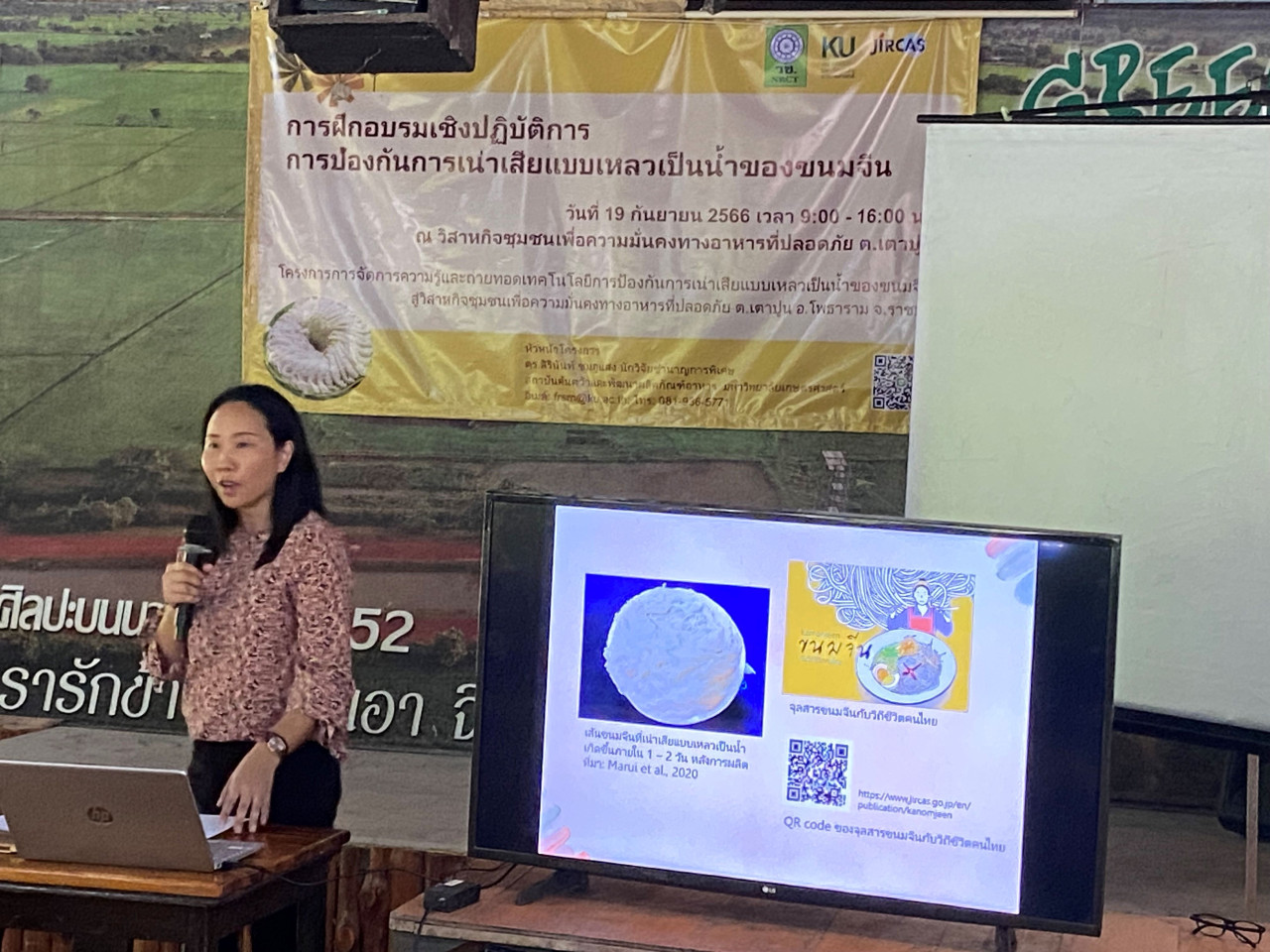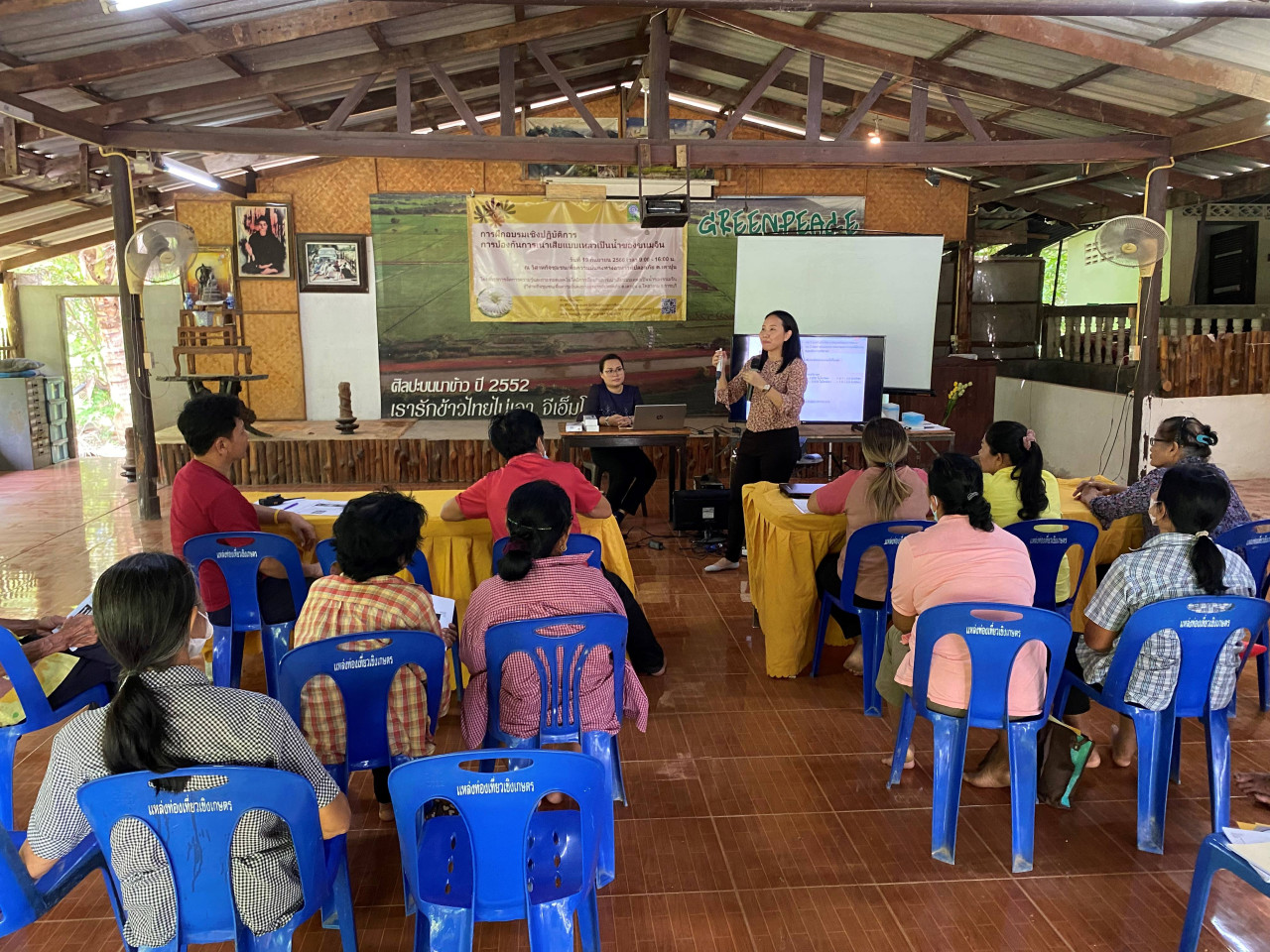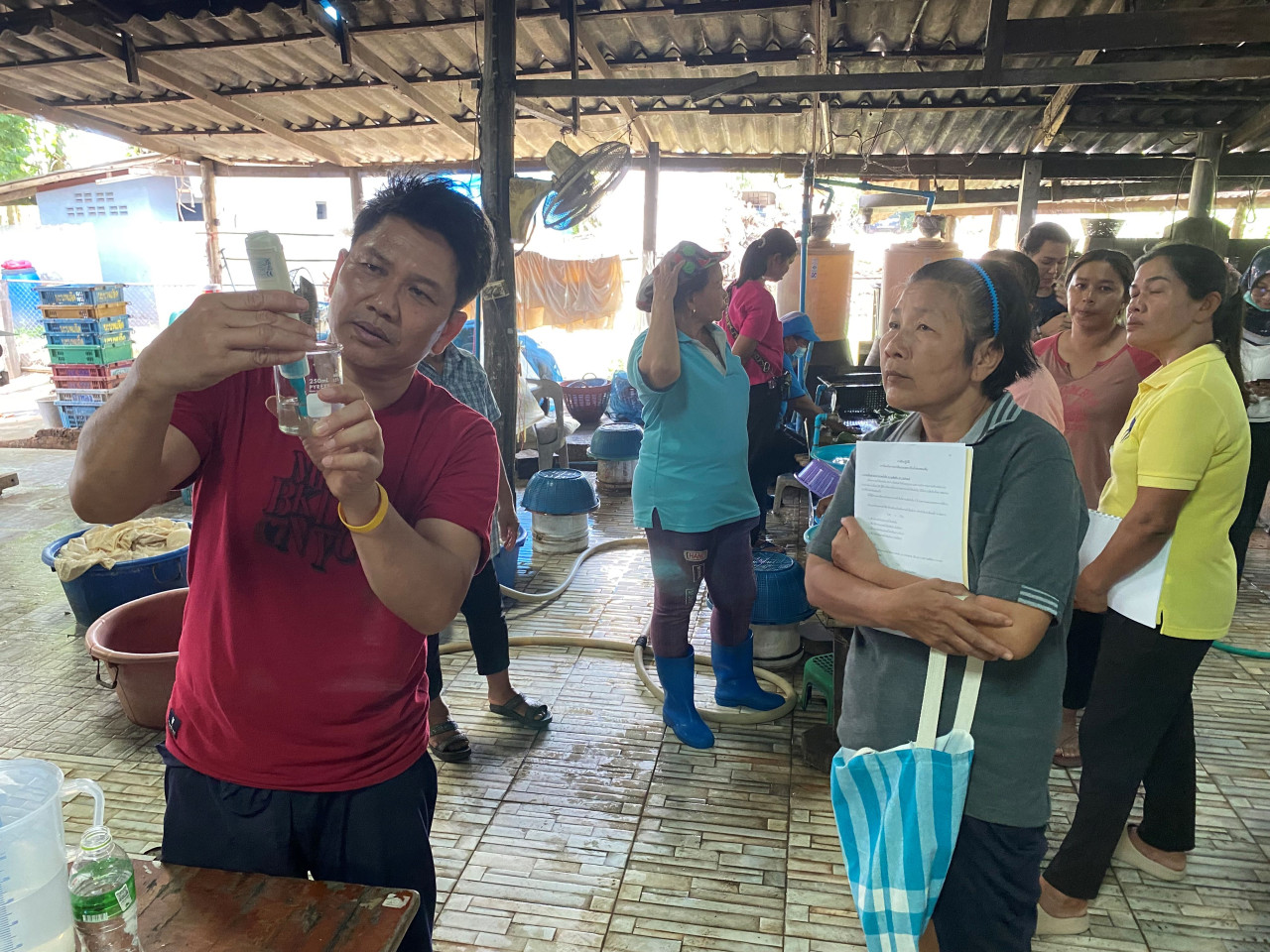On September 19 (Tue), 2023, a workshop was held in Photharam District, Ratchaburi Province, Thailand, to introduce a technology to control liquefaction of fermented rice noodles (Thai name: khanomjeen). This technology was developed jointly by JIRCAS and the Institute of Food Research and Product Development (IFRPD) of Kasetsart University, Thailand. This technology is also included in the "Technology Catalog Contributing to Production Potential and Sustainability in the Asia-Monsoon Region Ver.1.1" published by JIRCAS as part of the Ministry of Agriculture, Forestry and Fisheries (MAFF) project “Accelerating application of agricultural technologies which enhance production potentials and ensure sustainable food systems in the Asia-Monsoon region” launched in FY2022.
This workshop was organized by IFRPD with support from the National Research Council of Thailand (NRCT) as part of its technology dissemination activities. Dr. MARUI Junichiro, Senior Researcher of the Biological Resources and Post-harvest Division, who developed the liquefaction control technology for khanomjeen, participated as a collaborator.
Khanomjeen is a traditional food that is widely available in Thailand. It is a favorite for everyday meals and celebrations such as the Thai New Year. Similar products are made in neighboring Laos, Vietnam, Cambodia, Myanmar and China. Liquefaction is a problem that occurs suddenly when water leaks out of the noodles shortly after they are made, causing them to melt and resulting in losses for the manufacturer. The liquefaction control technology presented at the workshop was developed as a method that can be easily introduced to local producers and is expected to be effective in reducing food losses.
Mr. Kritsana HUADLIM, a noodle maker who provided the venue for the workshop, and his colleagues are working with neighboring rice farmers to improve the quality of khanomjeen. His group also conducts a cultural tour of khanomjeen production for primary and secondary school students and tourists from all over Thailand, as well as technical guidance for producers.
The event was attended by 28 participants, including khanom jeen manufacturers, distributors and local government officials, and featured presentations on khanomjeen liquefaction by IFRPD researchers Dr. Sirinan SHOMPOOSANG, Ms. Patthinan VATICHANAN, Dr. Saphir SAA, followed by a demonstration on how to adjust pH to prevent liquefaction. The participants actively asked questions and made comments on the function of lactic acid bacteria in enhancing the preservation of khanomjeen and the relationship between noodle pH and liquefaction, showing the high interest in this technology. IFRPD will continue to provide technical support to local khanomjeen producers and to verify the effectiveness of the liquefaction control technology introduced.
References
- Liquefaction of Thai fermented rice noodles can be prevented by maintaining the product in acidic condition of pH around 4
https://www.jircas.go.jp/en/publication/research_results/2019_c01 - Sustainable Food Systems Strategy "MIDORI" (MAFF)
https://www.maff.go.jp/e/policies/env/env_policy/meadri.html - Accelerating application of agricultural technologies which enhance production potentials and ensure sustainable food systems in the Asia-Monsoon region https://www.affrc.maff.go.jp/kokusaikenkyu/asia-monsoon.html
- Technology Catalog Contributing to Production Potential and Sustainability in the Asia-Monsoon Region Ver.1.1
https://www.jircas.go.jp/en/greenasia/techcatalog



